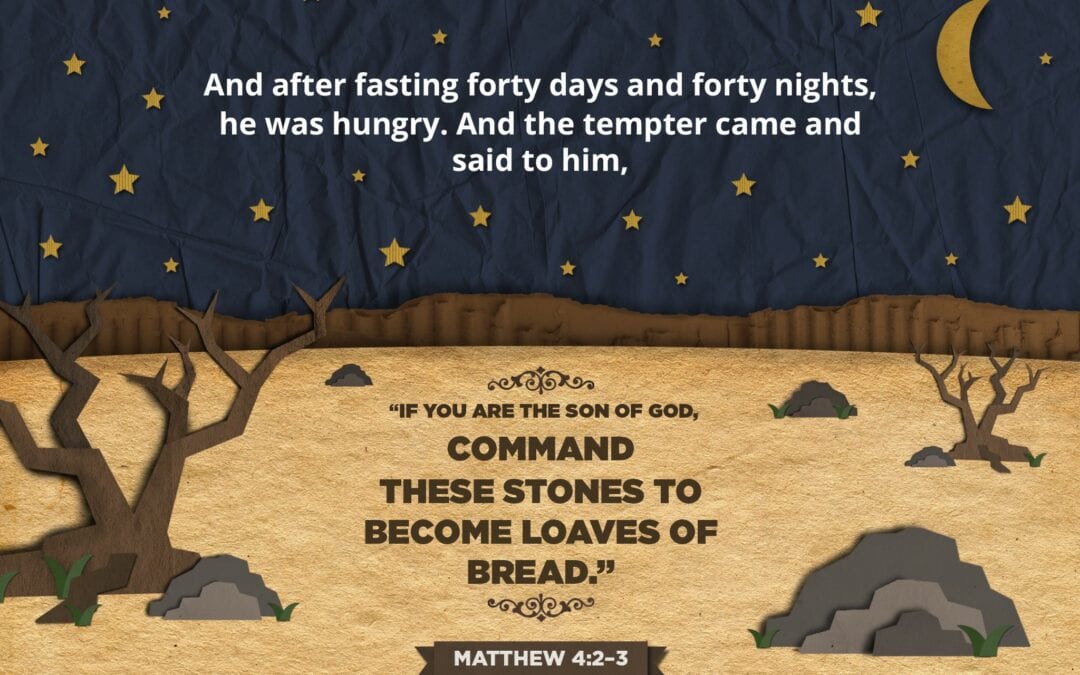This week marks the beginning of the season of Lent. Wednesday is Ash Wednesday, and tomorrow is “Fat Tuesday” (Mardi Gras makes it sound nicer, but translated it still means the same). I never really understood (and likely never will) the whole practice of “Fat Tuesday” – gorge yourself before giving something (or things) up for the 7 weeks of Lent. It kind of defeats the whole purpose of giving something up for Lent.
Giving something up for Lent has multiple layers to it, in my understanding of things anyway. The season of Lent is a season intentionally directed towards reminding us of the sufferings of Jesus Christ in our behalf. Ultimately, it directs us toward Good Friday and the ultimate sacrifice Jesus made so that our relationship to God could be repaired and we could have a whole new existence here on earth: a life of forgiveness, grace, and healing instead of a life of judgment, wrath, and destruction. Lent is the season that reminds us of everything Jesus deprived himself of in order to accomplish his salvation plan for his people. As a way of reminding ourselves of that, we often ‘give something up’ for Lent (deprive ourselves for a time).
As with any liturgical practice, this runs the danger of becoming something we do just for the sake of doing it, and thereby missing its original intent and purpose. Part of depriving ourselves during the season of Lent is to remind us of the voluntary deprivation of Christ. Another part, however, is to discipline ourselves and our bodies to live without something that would be difficult for us to live without. Worded differently, it is developing the practice and habit of fasting in order to know what our real needs are. When Jesus fasted for 40 days in the desert, the first temptation he faced from the devil was to turn stones into bread in order to satisfy his hunger. Jesus responds by quoting from Scripture: “Man shall not live on bread alone, but on every word that comes from the mouth of God” (Matthew 4:4). Jesus is here setting clear priorities: bread is important (bread is symbolic of all food), but God’s Word is far more important. Without physical bread, our bodies whither and eventually die. Without Spiritual bread (God’s Word), we spiritually whither and die.
As is the case with any good earthly gift from God (in this case, bread), what is naturally good for us can become the opposite when it replaces that which is essential to our existence: the Word of God. Different things can (often unbeknownst to us) take that place in our lives: food, alcohol, sex, relationships, family, vacations, ‘toys’, sports and other leisure activities, affirmation and approval from others … the list goes on and on. All of these things in and of themselves are not bad, they are all good gifts from God. However, they all have the potential to replace God as the primary source of spiritual sustenance in our lives if our priorities are out of line. The practice of ‘giving something up’ for Lent is a way to reset those priorities.
When we consider just how much Jesus deprived himself of for our sakes, many of the things we opt to deprive ourselves of during Lent seem grossly insignificant by comparison. Often, if we choose to do anything at all, we choose something that is relatively easy for us to live without for the 7 weeks of Lent; things like chocolate (or other junk foods), alcohol, and swearing tend to be staple sacrifices for lent based on a quick Google search, and my own memory. For a fitness guru to give up chocolate or a teetotaler to give up alcohol is no sacrifice at all. It completely defeats the purpose. Of course, these are extreme cases, but the point can still be taken: whatever we may decide to give up must cost us something.
The purpose of a spiritual fast, however, is not simply to deprive ourselves of something to prove we can live without it. As already mentioned, it is a way of resetting our priorities to bring them more in line with God’s desires and intentions for us as his people. When we give something up, something must fill that gap. Psychology has shown this to be true of people with addictive personalities. When they give up one addiction (e.g. alcohol), it is often replaced by something else (e.g. food). I’m guessing this is why so many smokers gain weight when they’re trying to quit smoking. The purpose of fasting in the life of a Christian, however, is to learn to rely on God more for everything that is essential for us. Outside of a Lenten fast, the historic practice of a spiritual fast from food encourages using hunger pangs as an occasion to pray to God. Doing so encourages us to replace the physical appetite with something spiritual. It also is a way to grow in our ability to rely on God for what we need.
So, one thing we must keep in mind when considering what we might give up for Lent, we also need to consider what we will replace it with. So, for example, we might give up our morning coffee and news feed and instead use that time to read our Bible or a devotional. Perhaps in giving up that coffee, we use every yawn as an opportunity to pray and ask God for the energy to make it through the day. What we see as a common thread, here, is that whatever we give up is something that needs replacing. Put differently, if we won’t miss the thing we’re giving up, it won’t naturally lend itself to opportunities for prayer, Scripture reading, or other practices directed towards growing in our relationship to God.
One final thought as we consider everything we’ve reflected on here: instead of asking ourselves “what am I willing to give up for Lent?” what we should be asking is, “what am I not willing to give up for Lent?” Our answer to that question is probably the very thing that needs to go.
So, what are you giving up for Lent?


Recent Comments